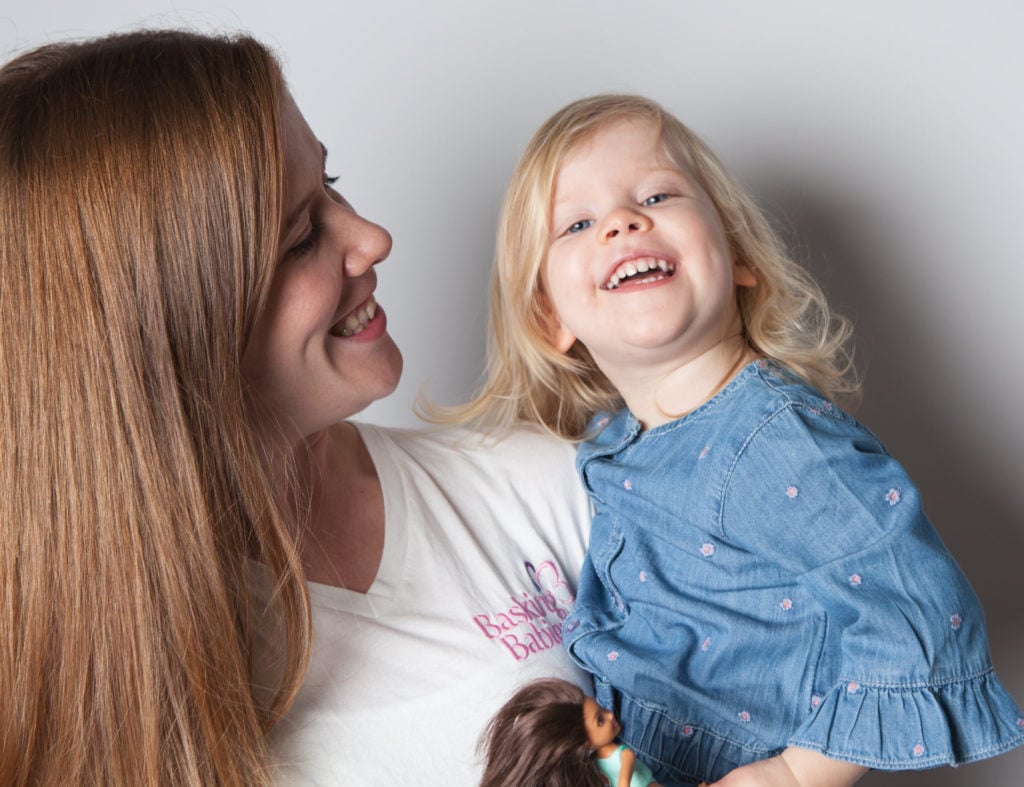
Pregnancy can bring with it many joyful moments as well as many less appealing symptoms. We caught up with Jen from Basking Babies Laindon & Orsett to hear about her experience of the third trimester.

What is the third trimester?
Pregnancy is divided approximately into thirds with the third trimester beginning around week 28 and continuing until you give birth, which may be around week 40 of pregnancy. Or in the case of my firstborn, week 42!
Every pregnancy is different and every woman’s experience of pregnancy varies. Some seemingly sail through it. Others are plagued by a whole host of health problems and daily discomforts. There is no ‘one size fits all’.
For many (and indeed for me), the first trimester is characterised by nausea and extreme tiredness. That is followed by some relief and energy in the second trimester, before that familiar exhausted feeling returns for the final few months. I’m in that place now, at three days over my estimated due date. Come on baby!
What are the symptoms of the third trimester?
Your little one has a lot of growing to do in the third trimester, gaining approximately half a pound per week from week 36. As a result, you’ll be experiencing symptoms associated with a reduction of space in your tummy. This will be accompanied by some serious kicks as baby gets comfy and into position for birth.
As your bump expands in the third trimester, you may find yourself complaining of some of the following:
- Nausea – while this tends to subside after the first trimester, by week 28 your stomach will be competing for space with your ever-expanding uterus. This might mean you may not be able to enjoy the larger meals of weeks gone by (*sob*). I’ve found that smaller meals and snacks throughout the day can help to alleviate that sicky feeling, while ensuring I get all the nutrients I need to support myself and baby (while also running around after my four year old!)
- Fatigue – pregnancy places a lot of demands on your body, particularly at this stage. Tiredness and fatigue are common complaints. I’ve found pregnancy yoga and a bit of meditation before bed (the Calm app is fab!) have helped me to drift off to sleep at night when the insomnia sets in.
- Braxton Hicks contractions – I haven’t experienced these with either of my two pregnancies but I know plenty of mums-to-be who have. These are practice contractions and are your body’s way of preparing for labour.
- Backache – this one will be all too familiar for many pregnant women. A pregnancy hormone called relaxin loosens your joints in preparation for birth. On top of that your centre of gravity changes as your belly expands which can lead to a sore back. Resting is probably the best advice here and I’ve found my birthing ball and a warm bath very helpful!
- Pelvic pain and lightning crotch – there is a bit of a spectrum of complaints when it comes to this symptom. Lightning crotch refers to sharp pain in the area around the vagina, rectum or pelvis and seemingly comes out of nowhere. The causes are unknown but may be due to baby’s movements affecting the nerves around the pelvis area. Pelvic girdle pain (PGP) or symphysis pubis dysfunction (SPD) is usually caused by the joints moving unevenly (thanks relaxin!) and can be debilitating for some. If the pain is affecting your daily life, you can ask your midwife for a referral to a physiotherapist who specialises in obstetric pelvic joint problems.
- Clumsiness – this pregnancy has made me SO clumsy and so forgetful! Again, I’m blaming my belly for throwing me off balance and trying to laugh my way through the mishaps.
- The need to have a wee, ALL THE TIME – extra weight and pressure on your pelvic floor can have a big impact on bladder control. You may also find yourself waking several times in the night to use the toilet. Those pelvic floor exercises are hugely beneficial. You can always speak to a women’s health physio such as Anna from Animated Physio if you’re really struggling and would like some extra support.
- Mood changes – during this pregnancy, I have found myself becoming increasingly irritable, resulting in a lot of guilt when I’m impatient with my four-year-old daughter. These feelings are normal as hormonal changes have you crying one minute and laughing the next. Again, the Calm app has really helped me to feel more relaxed as the weeks go by.


Other symptoms you might be experiencing:
- Headaches
- Heartburn
- Diarrhea
- Abdominal twinges
- Varicose veins
- Stretch marks
- Wild dreams
- Leaky breasts
When to seek advice
You know your body best, although it might feel like someone else’s at this point in your pregnancy! If something doesn’t feel right or you have any concerns at all, do have a chat with your midwife. Don’t suffer in silence.
The highs
Looking at the above, it may seem like the third trimester brings with it a lot of discomfort, but it can also be a joyful time as you feel your little one kicking regularly (I’m getting booted in the rib cage as I type!) You might be filled with nervous excitement as your due date approaches or you might be worried about what’s to come. Or, like me, you might be experiencing both several times per day!
My biggest piece of advice would be to fill your mind with positive stories, surround yourself with positive people, and take the opportunity to rest whenever you can. If you’re overdue and feel like you’ve had enough, remember that babies are considered full term anywhere between 37-42 weeks. Baby will come when ready!
About the author

Jen Dowding
Franchise owner and instructor for Basking Babies Laindon & Orsett. Admin & Marketing Assistant for Basking Babies UK.
